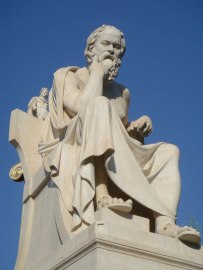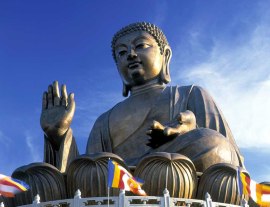Global Citizenship and Deep Dialogue in Education
In our global age, with the vast plurality of worldviews and cultures coming into contact with each other, is it not necessary for cross-cultural and inter-faith dialogue, coupled with a sensitivity that appreciates diversity, to be prevalent in society? Such a skill would require learning the art and ethics of deep dialogue, that is, ways of inquiring into the framework and worldview of the Other without violating it in order to engender real appreciation and empathy. We need to drastically evolve our current ways of being and living in the world if we are to face the crises of our time. The presence of conflict, political upheaval, and the question of our sustainability requires new and innovative ways to educate the younger generations.
There is a need for a radical shift in the way in which we structure our learning institutions. Philosophers addressing this matter, whether in the Western approach as in Plato’s Academy from the Greek tradition, or the Eastern mindset for example in Confucianism, have discerned that we must develop students’ capacities in all areas of life, and help them to connect on a deep level with themselves and others. They should be well-versed not only intellectually, which is what our schools have emphasized, but should have also cultivated their physical, artistic, intuitive, spiritual, philosophical, and emotional sides as well. Students need to be able to apply the knowledge they have learned, and also understand the how, why, and when behind this process. Furthermore, is not the mark of a global citizen and student of wisdom realizing that all people can connect on a deep, genuine level when encountered from the ground of the human experience? For all forms of life are deeply interconnected and mutually interdependent, and, as many of our wisdom teachers have shown, there is unity in diversity, and multiplicity in oneness.
The difficulty lies is giving people the tools and creating an environment where people can learn to cross worlds. In other words, how can we dilate our minds in order to appreciate and understand a way of life different from our own? People can begin to realize a deep interconnectedness by seeing that we are all sentient beings that face common problems both outwardly in society, and existentially, and that these problems can addressed more mindfully and reasonably if we learn how to unite in an authentic manner that does not eliminate difference, but celebrates it. Uniting to face the dilemmas of the human condition, and seeing that cultures across the globe have been trying to address such issues, we mature to non-violent and more integral ways of dealing with the fragmentation of inter-religious, cross-cultural, and philosophical conflicts and polar splits as we see in our current situation.
If one were to create an intellectually safe environment with the right teacher that allows students to engage in deep ontological self-reflection and dialogue with other worlds, he or she can reevaluate one’s own framework to develop the process of becoming a global citizen. Learning to conduct our minds with a global vision allows us to promote harmony and compassion for all beings and the ecology, for we come to a deeper understand the vast relationships, on both a personal and worldwide level, that constitute our being. This need to promote and facilitate an awakening of a holistic mind and to pave the way towards global unity can be accomplished through innovative pedagogies, awareness of how we are conducting our minds, mindfulness practices, and deep dialogue, among other practices that can be woven into the curriculum.
Related Articles and Videos:
On the Problems of our Age, Interconnectedness and Activism
Humanizing the Humanities: The Relevance of the Humanities in Education
Changing Education Paradigms, by Sir Ken Robinson
On Philosophy for Children, by Dr. Thomas Jackson
((Global Education)) by Dr. Ashok Gangadean
Thoughts on the Meaning of Life – Latest post










